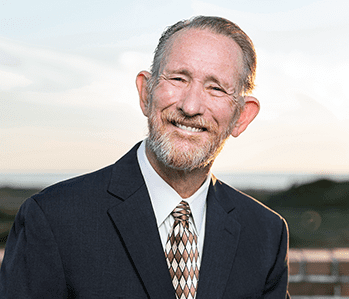
The purpose of this blog is to stimulate thought and discussion about important issues in healthcare. Opinions expressed are those of the author and do not necessarily express the views of CMDA. We encourage you to join the conversation on our website and share your experience, insight and expertise. CMDA has a rigorous and representative process in formulating official positions, which are largely limited to bioethical areas.
App Blogs, Conscience, and Right of Conscience
Conscience, Rights and the Social Imaginary
June 9, 2022
by Robert E. Cranston, MD, MA (Ethics)
At the time of this writing, the official U.S. Supreme Court ruling on the possible overturn of Roe v. Wade is still pending. The contents of the leaked Samuel Alito document stating that the right to an abortion is not ensconced in the Constitution is still in draft form. The search for the source of the highly unethical and likely politically-motivated leak is ongoing, but Chief Justice John Roberts has confirmed the draft is authentic. The hyperbolic media and public response that this ruling would make all abortions illegal is false. The verdict from the court would return the judgment on the legal status of abortions to individual states.
Recently, Ezekiel Emanuel, chair of the Department of Medical Ethics at University of Pennsylvania wrote, essentially, that any healthcare professional (advance practice nurse, physician assistant, certified nurse midwife, medical student or physician) who was unwilling to provide abortions should consider leaving medicine or at least any aspect of medicine that might qualify one to provide abortions, such as obstetrics/gynecology, family medicine, internal medicine, general surgery, etc. So, we see strong pro-choice sentiment seeking to force healthcare professionals to perform a procedure that many find contrary to conscience, on the basis it is a legal “right” at the same time the Supreme Court is ruling this is not a “right.”
The efforts to force healthcare professionals to participate in procedures opposed to their conscience continues on other fronts. Words have meaning, and The Equality Act has an honorable sounding name. Unfortunately, contrary to the noble sounding name, the act would likely force schools, churches and hospitals to accept the government’s beliefs and mandates about sexual orientation and gender identity. Bathrooms, dorms, other private spaces, class curricula and sports teams are included in this measure, and the Equality Act supersedes protections under the Religious Freedom Restoration Act. Federal grants for schooling and student loans would be at stake, and healthcare professionals who treat patients with sexual orientation and gender issues who request hormonal or surgical treatments to “affirm” their sensed gender would face penalties or possibly lawsuits if their patients’ wishes are not complied with. How did we as a nation arrive at these illogical, unethical positions?
A number of authors have published or posted extensive overviews of the winding path that led us to where we are today, including Rod Dreher (Live Not by Lies), O. Carter Snead (What It Means to Be Human…), John Stonestreet of the Colson Center, Katy Faust (Them Before Us) and, perhaps my favorite, Dr. Carl R. Trueman in Strange New World. This new work by Dr. Trueman is a follow-up to his earlier work The Rise and Triumph of the Modern Self, but it is written in a more accessible manner, with an accompanying study guide for use in group study.
Dr. Trueman traces our current “social imaginary,” where one’s personal version of reality trumps any objective evidence, back through Rousseau, Nietzsche, Marx, Darwin, Percy Bysshe Shelley and William Blake, and continuing on through Freud, Reich and Marcuse. The poison of this atomistic, entitled, post-modern philosophy did not arrive with oral contraceptives. It had been building steam for hundreds of years.
The impact of these developments on modern healthcare professionals is that, since the individual has become the arbiter of their own reality, the healthcare professional is relegated to the role of technician and must satisfy the requests of the internally-based patient. Neither reality nor conscience has bearing here.
We must fight back. The Supreme Court ruling, assuming the final version is consistent with the draft, is a step in the right direction. Dr. Trueman, quoting Rod Dreher, cautions against temptations to either despair or optimism, as both will feed inaction. Hope is a more fitting response. Hope in Christ’s omnipotence, His sovereignty and His awaited return. He concludes with the following thoughts:
- All Christians are to live faithfully in the time and place in which they have been set.
- We must work to the best of our ability to right the wrongs we can.
- We must remember that the real meaning of life is not found in the here and now but in the hereafter.


Excellent message, Dr. Cranston.